Progressive Dairyman recognizes recipients of the Innovation Center for U.S. Dairy’s sixth annual U.S. Dairy Sustainability Awards, announced June 28 in Chicago.
The program honors dairy farms, businesses and partnerships for socially responsible, economically viable and environmentally sound practices.
“This year’s winners demonstrated impressive leadership and creativity in the application of technology and other practices that protect our land, air and water. And they’re proactive about building strong relationships with their communities and employees,” said Barbara O’Brien, president of the Innovation Center for U.S. Dairy. “Based on this year’s nominations, it’s clear that all sizes of dairy farms and companies use sustainable practices because it’s good for the environment, good for their community and good for business.”
Summaries of the 2017 award recipients follow. Additional details about each award winner will be highlighted in future issues of Progressive Dairyman.
Outstanding Dairy Farm Sustainability Award
The Outstanding Dairy Farm Sustainability Award recognizes farms serving as examples of socially responsible, economically viable and environmentally sound dairy production.
Kinnard Farms
Casco, Wisconsin
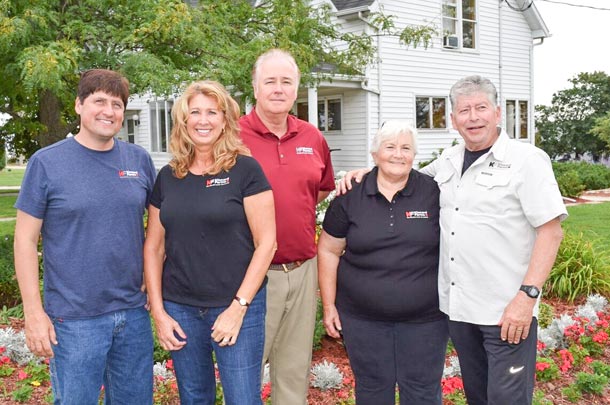
Started in 1948, Kinnard Farms has been referred to as the most “innovative farm in Wisconsin.” A first-of-its-kind sand recycling and drying facility is one reason why.
The Kinnards have two farm sites located within a half-mile of each other, housing 7,500 cows and 5,500 youngstock. The home farm features five naturally ventilated barns with fans and sprinklers for cow cooling. The new site features a 16-row, cross-ventilated barn built in 2015. It utilizes a waterwall, computer-controlled fans and baffles for cooling and climate control.
Prior to the latest expansion, Kinnard Farms trucked in 50,000 tons of sand bedding annually. With the expansion, sand volume would have doubled at a cost of roughly $107 per cow per year. That volume equated to 4,000 loads of separated, heavy, wet sand being trucked back out to fields at an additional $70 per cow per year.
To consider sand reclamation and manure management options, the Kinnards viewed hundreds of different sand mines, gravel pits and dairy farms, and interviewed hundreds of other farmers.
They conducted monthly meetings with a team of consultants for more than a year, bringing together specialists in ventilation, energy, natural resource conservation, hydrogeology, veterinarians, nutritionists, and university and government experts.
The system separates, washes and dries sand bedding for infinite reuse. A secondary pipeline under the new barn captures washwater from the milking parlor and all cow waterers as they are cleaned, directing this water to the sand room.
A dryer allows them to reuse sand immediately off the end of the system, eliminating the need for inventory, additional labor, machinery and fuel. More than 98 percent of the sand is utilized on the farm.
The capital investment for the sand facility was about $800 per cow. Operational costs account for another $20 per cow per year. Not accounting the principal investment, the current cost to bed a cow per year is running about $30.
Rickreall Dairy LLC
Rickreall, Oregon
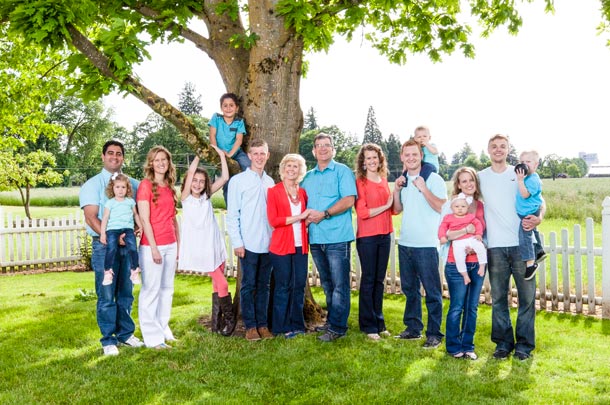
Rickreall Dairy LLC is owned and operated by Louie Kazemier who, along with his father-in-law, moved the dairy from California to Oregon in 1990. Today, Rickreall Dairy farms about 1,100 acres and is home to 3,500 Holsteins. Cows are housed in five parallel freestall barns equipped with flush alleys and bedded with composted manure.
Heifers and dry cows occupy another two freestall barns while calves are housed in individual stalls in a separate barn.
Rickreall Dairy’s continuous commitment to sustainability has more to do with a balanced incremental approach than with one singular project or process. Louie has identified and pursued multiple opportunities for environmental and economic improvement, and building community relationships.
When solids were building up in the manure lagoon, he initiated a trade with a grass seed farmer to provide fertilizer in exchange for feed. By installing a dredging machine, pumps and initially providing transportation, approximately 9.6 million gallons of excess manure nutrients are hauled to nearby Zeigler Farm.
The overall trade partnership is valued at $90,000. In 2016, this partnership saved Louie nearly $55,000 in feed costs.
After an energy audit, Rickreall Dairy teamed up with Energy Trust of Oregon and the USDA to upgrade barn lighting and parlor laundry systems. Louie built systems to capture and conserve water, recycling tap water at least three times before using it for crop irrigation. The liquid manure system is oversized and collects rainwater, and wastewater from a food manufacturing company is brought to the farm.
Rickreall Dairy welcomes thousands of visitors each year. As a humanitarian, Louie shares his resources and expertise to help people at home and abroad.
SwissLane Farms
Alto, Michigan
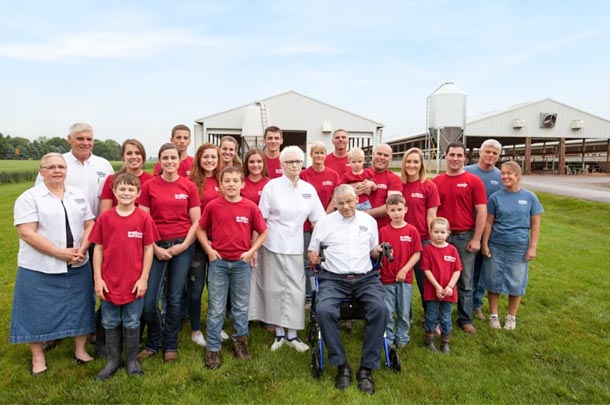
Born in Switzerland in 1888 and orphaned at the age of 6, Fredrick Oesch began to dream of owning land in America. He made the journey at 16, buying 91 acres in a small Michigan farming community 11 years later. Today, the 2,400-cow, 1,900-replacement heifer SwissLane Farms is run by the fourth generation, cropping 4,800 acres.
There are 34 members of the family (14 of which work at the farm) within a two-mile radius.
SwissLane Farms is a business whose economic growth benefits not only the family owners but also the community, while simultaneously restoring and enriching the environment.
Following a Farm Energy Audit, they replaced flush pumps with lower-horsepower slurry pumps to better accommodate flow and transfer water more efficiently. Variable-frequency drives reduced noise and equipment wear, provided a more stable vacuum and improved the plate cooler pre-cooling effectiveness.
Pre-heaters (tankless water heaters), along with piping insulation, were installed. Lighting was converted to light-emitting diode (LED), and occupancy sensors were installed.
SwissLane has been verified by the Michigan Agriculture Environmental Assurance Program (MAEAP), an innovative, proactive and voluntary program that helps farms of all sizes and all commodities voluntarily prevent or minimize agricultural pollution risks.
SwissLane shares their story and creates transparency through participation in the Dairy Discovery program, reaching more than 36,000 students, teachers and families through tours, camps and events since 2006.
Outstanding Achievement in Resource Stewardship Award
The Outstanding Achievement in Resource Stewardship Award recognizes dairy operations (both on and off the farm) that have measurable success in managing their resources with optimum efficiency and quality.
Kellercrest Registered Holsteins
Mount Horeb, Wisconsin
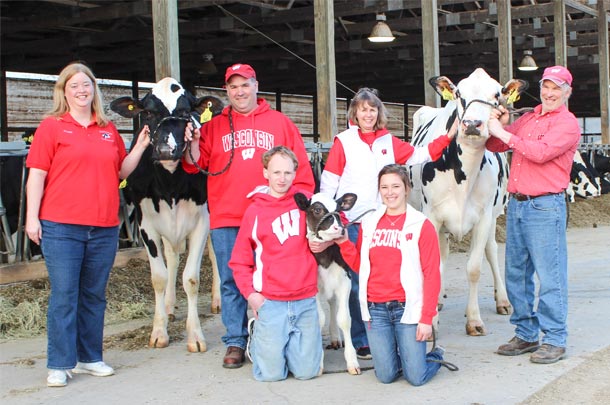
Family-owned, rooted in its history and committed to its legacy, Kellercrest began in 1968 when Daniel and Jeanne Keller purchased two registered Holsteins and created the Kellercrest prefix. Today, their sons Tim and Mark and their families milk about 300 cows on 427 owned acres, renting another 200.
Kellercrest sits in two different watersheds, each with Class II trout streams near the farm. Its unglaciated land includes highly erodible slopes of up to 18 to 20 percent and soil rich in phosphorus.
Kellercrest was a leader in the Pleasant Valley Watershed Project, a collaboration between farms and local, state and national agencies and organizations. Mark also helped form Farmers for the Upper Sugar River Watershed.
The Kellers have practiced contour farming for more than 50 years, have implemented more no-till farming and use winter rye as a cover crop and additional forage. They utilize a new no-till corn planter that can plant 15-inch corn rows. Using the SnapPlus program, they developed their own nutrient management program.
Winter rye also “eats up” phosphorus, allowing the Kellers to double-crop late corn silage, reducing phosphorus by 35 pounds per acre per year. No phosphorus has been purchased since 2009, for an average annual savings of $18,000.
With three years of water quality data, the Pleasant Valley project measured a 55-percent decrease in phosphorus levels during storm events. With new conservation practices, it’s estimated an average of 4,400 pounds of phosphorus and 1,300 tons of sediment are kept out of the Pleasant Valley stream each year. Converting 175 acres each year from normal tillage practices to no-till saves about $4,400 in fuel and other expenses per year.
The Kellers proactively show that farmers are good stewards of land, water and air resources, hosting about 30 tours per year.
Mercer Vu Farms
Mercersburg, Pennsylvania
(Honorable Mention)
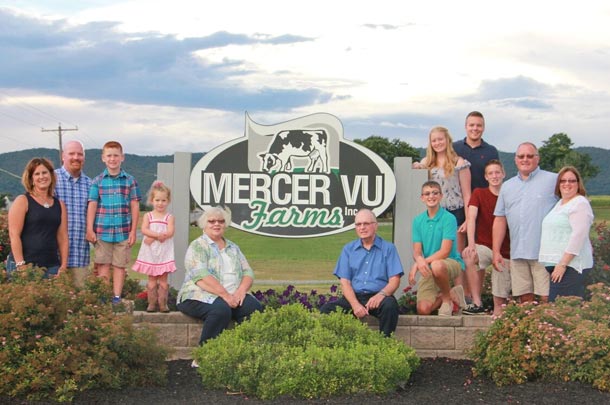
Started with seven cows by Glen and Mae Hissong in 1949, Mercer Vu Farms now milks about 2,800 Holsteins and raises about 2,400 replacement heifers on 4,000 acres in Mercersburg, Pennsylvania, and on a satellite operation in White Post, Virginia.
Rick and Rod Hissong and their families believe if you take good care of the animals, environment and community, they will take good care of you.
A comprehensive manure management system maximizes nutrient value while protecting the Chesapeake Bay Watershed. Mercer Vu uses recycled water to flush manure and sand into a sand separator, reclaiming up to 95 percent of the sand bedding for reuse.
The manure goes through a series of screens and screw presses, then travels through a self-contained centrifuge for further separation. All solids are used for either bedding or compost. The liquid manure is stored in a covered lagoon, reducing nitrogen volatilization and anaerobic decomposition, for an annual reduction of 3,500 metric tons of greenhouse gases.
Their approach adds management flexibility for nutrient applications in-season to meet weather changes. The system has reduced manure hauling costs and eliminated synthetic fertilizer on 400 acres.
Outstanding Achievement in Community Partnerships Awards
The Outstanding Achievement in Community Partnerships Award recognizes collaborations (both on and off the farm) to improve lives and communities through their positive impacts on child health and wellness, hunger relief and/or environmental stewardship.
Oakland View Farms and Midshore Riverkeeper Conservancy
Caroline City, Maryland
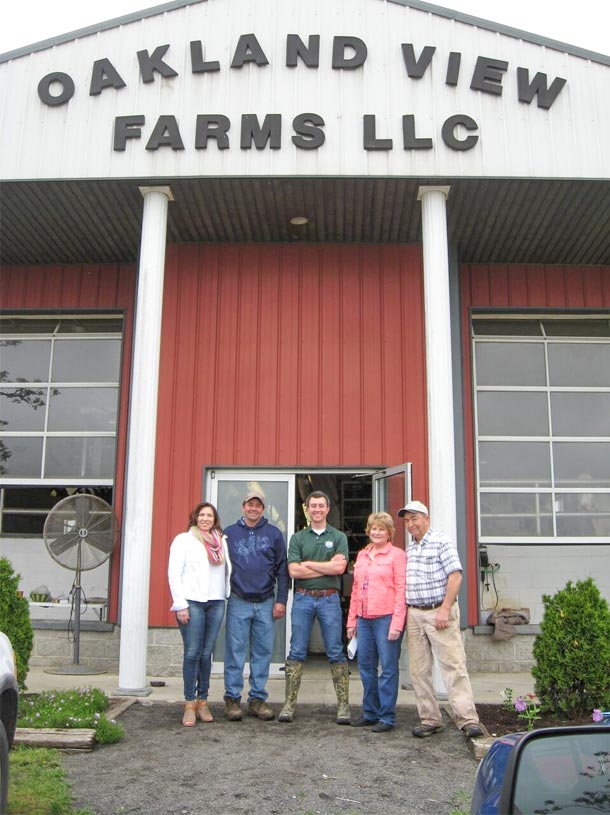
The partnership between Oakland View Farms and Midshore Riverkeeper Conservancy (MRC) is a proactive approach taken between two traditionally contentions groups. Their mutual goal was to protect the area’s water quality while building a better relationship between the agriculture and environmental communities.
They implemented a woodchip bioreactor and a lagoon aeration system, resulting in a 100 percent reduction of nitrate concentrations and an anticipated reduction of 70 percent of phosphorus.
Oakland View Farms is a third-generation dairy farm in Caroline County, Maryland, operated by Richard and Janise Edwards; their daughter Jill Youse, her husband, Scott, and their children, Patrick and Nathalie, milk 700 cows and farm 1,450 acres.
MRC is a local water quality advocacy non-profit organization formed to restore and protect the waterways of the Eastern Shore of Maryland and its impact on the Chesapeake Bay watershed.
U.S. Dairy Education and Training Consortium
College Station, Texas
(Honorable Mention)
The U.S. Dairy Education and Training Consortium was founded in 2008. The southwest U.S. area has experienced tremendous dairy growth; at the same time many land-grant universities have had to reduce or eliminate dairy programs, cutting educational and training opportunities for the next generation of dairy employees and managers.
Generally, students register at their home universities for credit hours and travel to Clovis, New Mexico, for the six-week classroom schedule. The area was chosen because of its close proximity to about 60 dairies, providing practical on-farm education settings on diverse dairy systems, management styles and developmental stages.
The program has been able to create unique partnerships with allied industry, providing educational opportunities at feed, beef and dairy processing facilities as well as animal health diagnostic and feed analysis labs.
To date, 372 students representing 44 U.S. universities, as well as students from Canada and New Zealand, have participated.
Michigan Milk Producers Association
Novi, Michigan
(Honorable Mention)
Michigan Milk Producers Association (MMPA) is a dairy cooperative representing about 1,200 dairy farms in Michigan, Indiana, Ohio and Wisconsin. MMPA owns three milk processing facilities in Michigan and Indiana, processing and marketing about 5 billion pounds of milk per year.
As Flint, Michigan, managed a crisis of lead-contaminated water, MMPA donated 36,864 gallons of milk (retail value of $101,745) in January to August 2016.
The co-op provided milk while other organizations, including Michigan State University (MSU) Extension, the MSU Pediatric Public Health Initiative, the Kroger Co. of Michigan, the Food Bank Council of Michigan, the Food Bank of Eastern Michigan, the United Dairy Industry of Michigan and Quickway Carriers provided logistical and educational resources.
Outstanding Dairy Processing and Manufacturing Sustainability Award
The Outstanding Dairy Processing and Manufacturing Sustainability Award recognizes dairy processors and manufacturers whose businesses exemplify the triple bottom line of sustainability: good for business, the community and the environment.
Glanbia Nutritionals
Evanston, Illinois
Glanbia Nutritionals is the U.S. cheese and whey processing division of Glanbia plc. With four cheese plants (three wholly owned facilities in Idaho and one joint venture plant in New Mexico), Glanbia Nutritionals is the largest American-style cheese manufacturer in the U.S.
The company’s first corporate sustainability report in 2012 was an attempt at measuring, benchmarking, evaluating and setting sustainability goals. Glanbia’s approach is to start in a manageable size and scale, ensuring success through constant revision and reflection, then building the program and strategy larger. Glanbia is rolling out its strategy around the globe in 2017. ![]()
PHOTO 1: An innovative method of recycling sand bedding earned Kinnard Farms an Outstanding Dairy Farm Sustainability Award. The Kinnards milk 7,500 cows and raise 5,500 youngstock near Casco, Wisconsin.
PHOTO 2: Rickreall Dairy is home to 3,500 Holsteins near Rickreall, Oregon. As an Outstanding Dairy Farm Sustainability Award recipient, Rickreall Dairy’s continuous commitment to sustainability has more to do with a balanced, incremental approach than with one singular project or process.
PHOTO 3: Thirty-four members of the Oesch family, 14 of which work at the farm, live within a two-mile radius of SwissLane Farms, near Alto, Michigan. The fourth-generation dairy milks 2,400 cows on about 4,800 acres.
PHOTO 4: Kellercrest Registered Holsteins, a 300-cow, family-owned dairy farm in Mount Horeb, Wisconsin, received an Outstanding Achievement in Resource Stewardship Award.
PHOTO 5: Outstanding Achievement in Resource Stewardship Award honorable mention winner Mercer Vu Farms is operated by the Hissong family. They milk 2,800 Holsteins on 4,000 acres in Mercersburg, Pennsylvania, and on a satellite operation in White Post, Virginia.
PHOTO 6: Oakland View Farms is a third-generation, 700-cow dairy farm in Caroline County, Maryland. Their partnership with the Midshore Riverkeeper Conservancy earned an Outstanding Achievement in Community Partnerships Award. Courtesy photos.
Visit Innovation Center for U.S. Dairy - Sustainability to learn more.

-
Dave Natzke
- Editor
- Progressive Dairyman
- Email Dave Natzke




